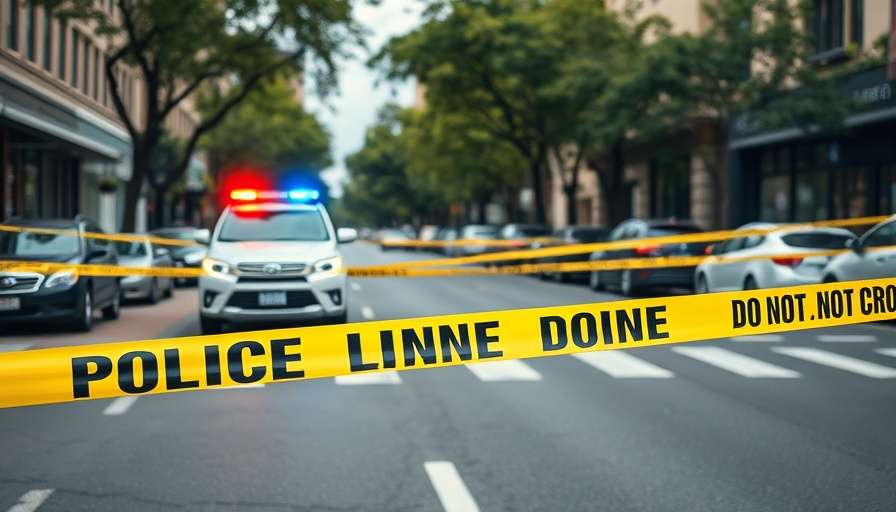
Understanding the Boulder Incident: What Happened?
On an afternoon that took a horrific turn, Boulder, Colorado, became the site of a targeted attack that injured several people. Just before 1:30 p.m. on a Sunday, police began receiving distress calls regarding a man with a weapon who had set individuals on fire outside the county courthouse. Witnesses reported scenes of chaos as people suffered varying degrees of burn injuries, prompting law enforcement to respond rapidly and apprehend the suspect. This violence has shocked the community, highlighting a rising trend of extremist behavior.
The Role of Hate in Our Communities
The Boulder Police Chief Stephen Redfearn condemned the actions of the assailant, although he cautioned against speculating too quickly about motives. Nevertheless, Colorado Attorney General Phil Weiser suggested that the evidence points toward this incident being a hate crime. The increasing instances of hate-based violence raise pressing questions about communal safety and the state of civil discourse in today's polarized society. "People should feel safe expressing their beliefs peacefully," he stated, emphasizing the necessity of dialogue over brutality.
Pro-Israel Rally or Targeted Hate?
Investigators are delving deeper into the events leading up to the attack, paying particular attention to a pro-Israel demonstration that coincided with the incident. A joint statement from Boulder's Jewish community expressed their heartbreak over the attack, noting that it occurred during their "Run for Their Lives" event aimed at raising awareness for hostages remaining in Gaza. Their sentiments reflect a larger concern: how political conflict can spill into violence and endanger lives.
Rising Extremism: A National Concern
The Boulder attack is not an isolated incident; rather, it mirrors a disturbing pattern across the United States, where hate-inspired violence is becoming alarmingly prevalent. According to recent FBI statistics, hate crimes surged in 2022, highlighting an urgent need for societal intervention. As communities grapple with these violent expressions, leaders and citizens alike are called to reflect on what leads to such divided opinions and how they might foster unity instead.
Community Response: Rebuilding Trust and Dialogue
In the wake of this traumatic event, the Boulder community is faced with the dual challenge of coping with the aftermath and preventing future violence. Local leaders are advocating for open forums and discussions aimed at bridging the divides within the community. By encouraging individuals to share their experiences and perspectives, there’s a hope that empathy and understanding can counterbalance the forces of hatred and fear.
What We Can Learn From Boulder
This incident serves as a stark reminder of the potential consequences of unchecked animosity. As discussions surrounding international issues and internal sentiments heat up, there needs to be a conscious effort to reject violence and promote peaceful dialogue. Everyone, irrespective of their stance, must be committed to voicing their opinions without resorting to harmful actions.
Call to Action: Standing United Against Hate
As we process the events in Boulder, let us collectively advocate for safety and respect within our communities. It is our duty to ensure that everyone feels entitled to express their opinions without fear. Engage in conversations, support local initiatives fostering inclusivity, and contribute to creating a society where violence is a distant memory, not a regular occurrence.
 Add Row
Add Row  Add
Add 




 Add Row
Add Row  Add
Add 








Write A Comment